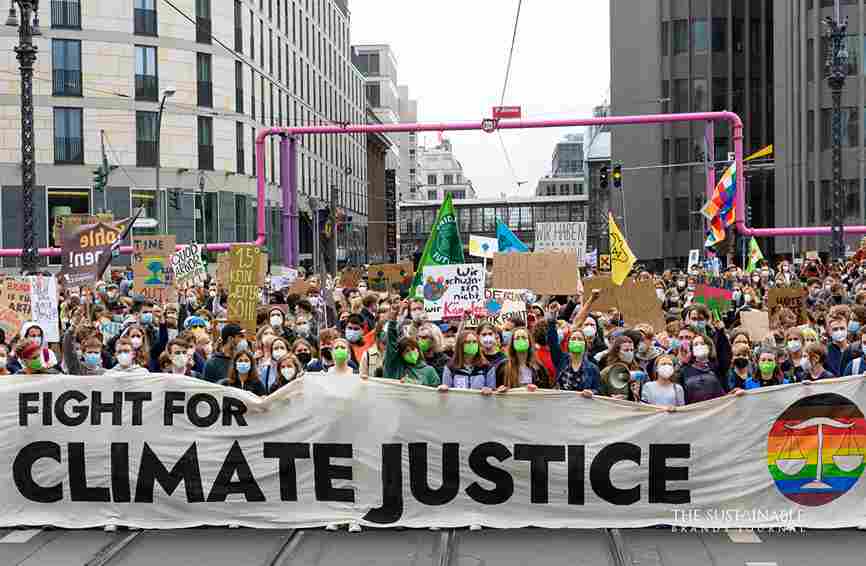
Climate Activists Protest at Davos Forum, Accusing Big Oil of Hijacking Climate Change Debate
The demonstration at the Davos Forum on January 15th was organized by a coalition of environmental groups, including Greenpeace and Extinction Rebellion, who are calling for urgent action to address the climate crisis. The protesters called out the oil industry for their role in driving the crisis and for their attempts to shape the conversation in their favour. They also called out the governments and business leaders in attendance for not doing enough to address the crisis.
The issue of climate change has been a central theme at the Davos Forum in recent years, with the World Economic Forum recognizing the urgent need for action on the issue. However, many activists and experts argue that the actions taken so far have not been sufficient to address the scale of the crisis. The Intergovernmental Panel on Climate Change (IPCC) has warned that global emissions need to be reduced by 45% by 2030 to limit global warming to 1.5 degrees Celsius, the level at which scientists say the worst effects of climate change can be avoided. However, emissions continue to rise, and current policies and pledges are not on track to meet this target.
The protesters at Davos are calling for more ambitious action, including the phasing out of fossil fuels and the acceleration of the transition to clean energy. This includes calls for a just transition for workers and communities that are dependent on the fossil fuel industry and for the wealthy and powerful to be held accountable for their role in driving the crisis.
The oil industry, in particular, has come under scrutiny for its role in driving the crisis and for its efforts to shape the conversation in its favour. The industry has a long history of funding climate denial and lobbying against climate policies. According to a report by InfluenceMap, the world’s largest publicly traded oil and gas companies have spent over $1 billion on lobbying efforts to delay, control, or block policies to address climate change since the Paris Agreement was signed in 2015.
The industry has also been criticized for its attempts to rebrand itself as part of the solution to the climate crisis. Many of the major oil companies, including BP and Shell, have announced plans to reduce their emissions and invest in clean energy, but activists and experts argue that these plans are not enough to address the scale of the crisis and that the companies continue to invest in fossil fuels.
The protesters at Davos also called out governments and business leaders for not doing enough to address the crisis. While many countries have set targets to reduce their emissions, these targets are not on track to meet the level of reductions required to limit global warming to 1.5 degrees Celsius. Business leaders, in particular, have been criticized for not taking sufficient action to address the crisis and for not using their financial and political power to push for more ambitious policies.
The demonstration at the Davos Forum was met with mixed reactions from attendees. Some praised the activists for raising awareness of the issue and called for greater efforts to combat climate change, while others criticized the protesters for disrupting the proceedings and accused them of being out of touch with the economic realities of the world.
However, despite the criticisms, the fact remains that the world is currently not on track to meet the emissions reductions required to limit global warming to 1.5 degrees Celsius, and the crisis is already causing devastating impacts, particularly for the world’s most vulnerable communities. The protesters at Davos are calling for more ambitious action to address the crisis, including the phasing out of fossil fuels, the acceleration of the transition to clean energy, and holding the wealthy and powerful accountable for their role in driving the crisis.
In conclusion, the demonstration at the Davos Forum on January 15th drew attention to the ongoing debate on climate change and the role of the oil industry in shaping it. While the activists called for more action on the crisis,

Prachi, an accomplished Chief-Editor at The Sustainable Brands Journal, has 15+ years of experience in Europe, the Middle East, and India, managing 90+ global sustainable brands. She’s a prolific writer in sustainability, contributing to various publications. Prachi’s unwavering passion and expertise make her a recognized authority, driving positive change and inspiring a sustainable future.





